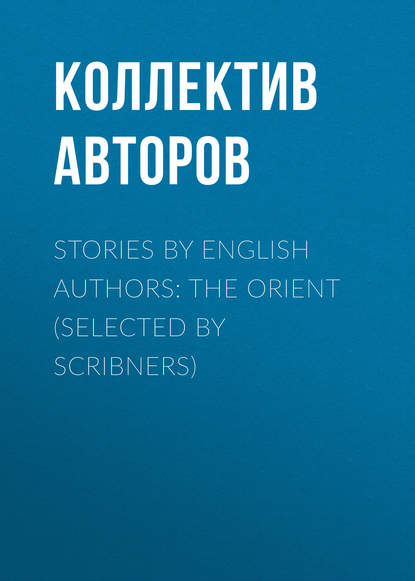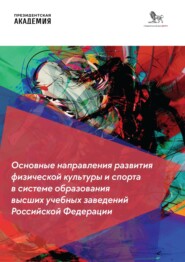По всем вопросам обращайтесь на: info@litportal.ru
(©) 2003-2024.
✖
Stories by English Authors: The Orient (Selected by Scribners)
Настройки чтения
Размер шрифта
Высота строк
Поля
“She! She was for going away and leaving everything; she felt herself the worst woman in the world. It was only by begging and praying of her on my knees that I got her to stay in the house that night, for she was so far English, and had such a fancy, that she saw everything blacker than any Englishwoman would, even the partick’lerest. Afterward Master Horace was that good and gentle, and she loved him so much, that he persuaded her to say nothing more about it, and to try to live as if it hadn’t been. And so she seemed to do, outward like, to other people. But it wasn’t ever the same again. Something had broken in them both; with him it was his trust and his pride, but in her it was her heart.”
“But the children – surely they comforted her.”
“Eh, miss, that was the worst. Poor lamb, poor lamb! Never after that day, though they were more to her nor children ever were to a mother before, would she have them with her. Just a morning and a good-night kiss, and a quarter of an hour at most, and I must take them away. She watched them play in the garden from her window or the little hill there, and when they were asleep she would sit by them for hours, saying how bonny they were and how good they were growing. And she looked after their clothes and their food and every little toy and pleasure, but never came in for a romp and a chat any more.”
“Dear, brave heart!” murmured the girl.
“Yes, ma’am, you feel for her, I know. She was fair terrified of them turning Maori and shaming their father. That was it. You didn’t notice? No; after you came she was too ill to bear them about, and it seemed natural, I dare say. The Maoris are a fearful delicate set of folks. A bad cold takes them off into consumption directly. And with her there was the sorrow as well as the cold. It was wonderful that she lived so long.”
Alice threw her arms round Mrs. Bentley’s neck.
“O nurse, it is all so dreadful and sad. Couldn’t we have somehow kept her with us and made her happy?”
The old woman held her close. “Nay, my dear bairn, never after that happened. It, or worse, might have come again. It’s something stronger in them than we know; it’s the very blood, I’m thinking. But she’s gone to be the angel that Dick always said she was.”
Alice looked away over the starlit garden to where the plumy trees stirred in the night wind. “No,” she said, fervently, “not ‘gone to be,’ nurse dear; she was an angel always. Dick was right.”
KING BILLY OF BALLARAT, By Morley Roberts
King Billy was given to strolling up and down the streets of Ballarat when that eviscerated city was merely in process of disembowelment, before alluvial mining gave way to quartz-crushing, when the individual had a chance, if a very vague one, of sudden and delightful fortune. The Ballarat blacks were a scaly lot, to talk of them like ill-fed hogs, as men were wont to do. They dwined and dwindled, as natives will before the resources of civilisation: the bloodthirsty ones got killed out; the rumthirsty ones died out; the wild corroboree was reduced to a poverty-stricken imitation of its former glory. King Billy’s authority grew less with the increase of his clothes. The brass plate with his name on it was about the last relic of his precarious power, and was chiefly valued as a means of notifying the public generally that they might stand drinks to a monarch if they saw fit and were not too humble. He was not haughty, and never presumed on his plate, as parvenus will. He came of an ancient stock, and could afford to condescend, even if he could not afford to pay for drinks. He was very kind to children, – white children, of course, – and was hale-fellow-well-met with many of them.
He was particularly fond of Annie Colborn, whose father was a magistrate and a gold commissioner, and a person of very great importance. Whether or not King Billy was wise in his generation, and out of the unwritten Scriptures of the somber bush had culled a maxim inculcating the wisdom of making friends of the sons of Mammon, I cannot say, but he was always good to Annie. For my own part, I do not believe the simple-hearted old king had any such notion inside his thick antipodean skull. He was good because he was not bad, which is the very best morality after all, and a great advance on much we hear of. And, besides, he was sometimes hungry, and Mr. Colborn’s Chinese cook was very haughty, and not to be approached except through an intermediary. And who so capable of conciliating Wong as Annie? Wong would make her cakes even when his pigtail hung despondently from his aching head after an opium debauch, and his cheeks were shining with anything but gladness; for if you get drunk very often on opium you shine.
Old Billy was mostly to be found where there was a chance of a drink; but if the fountains were dried up, or he had been insulted by some democratic, revolutionary, king-hating miner knocking his high hat down over his eyes, he usually went up to Mr. Colborn’s place, and sat on the fence, or on a log outside the gate. So he was often very melancholy when Annie came out. One day his hat was very, very badly bulged indeed.
“Your hat is very bad to-day, King Billy,” said six-year-old Annie, as she stood in front of him critically, with her head on one side. Without knowing it, the child had come to look upon the state of the poor king’s hat as emblematical of his state of mind. When it shut up like a closed concertina his barometer was low.
“Yes, missy,” said the king; “white man knock ‘um over eyes, and” – with a rub down his face – “skin ‘um nose.”
She inspected his nose carefully – though from a certain distance, because her own nose was very good, both inside and out, and she knew the king never got washed unless it rained when he was very drunk. And this was the end of summer. It had not rained since November.
“There is not very much skin off,” said Annie. “You had better wash it.”
The king made a wry face and changed the conversation.
“You got ‘um hat, Missy Annie? One hat baal brokum, allasame white fellow hat. Bad hat, King Billy bad; black fellow, white fellow laugh.”
He peered into his hat, and, trying to straighten it out, put his fist through the side. Poor Billy looked as if he could cry.
“You stop a minute,” said Annie, and, flying indoors, she brought out a very good high hat indeed. “Budgeree!” thought the king, that was a good hat. He could go down the streets like a king indeed, able to hold up his head with any rich man in Ballarat. He tried it on, and though it was much too big, he knew it shone. And the glory of a hat is in its shining as much as its shape; even a black fellow knows that.
But that hat very nearly led to serious trouble. For one thing, Mr. Colborn missed it; and never thinking Annie had given it away, when he saw the king sitting on the fence decorated with it, he stopped and interviewed him.
“Where did you get that hat, you old thief?” asked the magistrate, without any politeness to him who ruled the land before white men broke into the country. Some in authority are polite to those they dispossess; the Prussians, for instance, to the miserable King Billys who strut about the empire. But the Anglo-Saxon only respects himself, and even that to a limited extent, in new conquests.
The question troubled King Billy greatly. He did not know that Mr. Colborn would as soon have thought of murdering Annie as of bullying her; so he lied promptly: “Me buy ‘um, Mistah Cobon!”
Mr. Colborn took it off of his head, and saw that it was his, as he had thought. What he would have said I do not know, for just then he heard a voice behind him:
“Papa, it is my fault; I gave it to King Billy.”
Colborn turned round and took her up, letting fall the hat as he did so. Billy made a jump, picked it up, and, in his agitation, brushed it carefully the wrong way.
“My dear, if you gave it to him it’s all right. But why didn’t the old fool tell me?”
“He’s not an old fool, papa, and you must not say so. He’s a good man, and I think he thought you would be angry with me. Didn’t you, King Billy?” And the king, with a smile of conscious rectitude, admitted it was so.
Mr. Colborn gave him sixpence; and he gave Annie a great many kisses, declaring, with uncommon thoughtlessness, that whatever she did was right, and that she could give the king all his house, and Australia to boot. Whereon King Billy smiled a smile that was portentous, and showed his teeth to the uttermost recesses of his ample mouth. Looking down, he surveyed the rest of his clothes, which in parts resembled the child’s definition of a net as a lot of holes tied together with string, and, looking up, he inspected Mr. Colborn as if estimating the resources of his wardrobe. But being urgently smitten with the necessity of getting rid of his sixpence, he shambled off into the town. Other matters might wait; that admitted of no delay.
The mind of King Billy was not a big mind; it would no more have taken in an abstract idea than his gunyah would have accommodated a grand piano. He was as simple as sunlight, and to resolve his intellect into seven colours would want the most ingenious spectroscope. But he could make an inference from a positive fact, and, having made it, he did not allow more remote deductions to trouble his legitimate conclusion. He ceased to fear Mr. Colborn, and began to look upon the magistrate’s property as if it were at least half his own. So he got very drunk on the hospitality of a new chum miner who had been successful, and presently, presuming on his new possessions, got into a fight with his entertainer and a disrespectful subking of his own blacks, and was reduced to worse rags than ever.
Next morning he sat outside the magistrate’s house, on the lowest log he could find, and when Mr. Colborn came out he tackled him with the air of a subject king demanding redress of his suzerain.
“Well, Billy, what is it?” asked the suzerain.
“You belong gublement?” said Billy the king, with a question, an implied doubt, and a great complaint in his voice. Colborn laughed.
“Why, yes, Billy; I belong to the government, I suppose.”
“Then,” said Billy, “what you say to white fellow make ‘um black fellow drunk, knock ‘um all about? Call you that gublement?” And he showed his kingly robe, which had once been a frock-coat, with great disgust.
However, he met with no favour, and was told that he should not get drunk – that it served him right; with which magisterial decision Colborn got on his horse and rode off to the flat.
The king sat down sadly and considered thickly in his slow brain. Annie did not come out, and he knew better than to ask for her, for Mr. Colborn’s niece, who kept house for him, was but newly come from home, and thought all black fellows congenital murderers, which indeed they are in some parts of the north. So Billy sat and waited, for he wanted a new coat. How could he be respected in one whose natural divisions were unnaturally extended to the very neck? It was obviously necessary to get a new garment at once, and the best chance of a good one lay in little Annie’s kindness. But in order to obviate the slightest chance of his girl patron’s refusing, he must bring her some offering. He went off into the bush at the back of the town, and, coming to where three or four black fellows were camped, he sat down and talked with them. In spite of the heat, a wretched old gin, muffled up in her one garment, a ragged blanket, held her hands over the few burning sticks which represent an Australian native’s idea of a fire. Presently King Billy rose, and, taking a tomahawk, went farther into the bush. He looked about, and at last came to a tree, which he climbed native fashion, first discarding his clothes. When near the first big branches he came to a hole, and, putting in his hand, he extracted a lively young possum by the tail.
Next morning he was sitting on the Colborns’ fence as usual. At his feet was a little box with two or three slats nailed roughly across it. Inside was the possum. King Billy wondered what kind of a coat he could get. He liked a frock-coat; there was something majestic about it, something fine and ample. Common morning coats would not do; no one would insult a king by offering him tweed; even little Annie knew better than that, especially if he gave her a live possum he had caught himself. And when Annie did come out, she was in the seventh heaven of delight with the possum, and ready to bestow anything in the world on King Billy.
“You give poor Billy one fellow coat, missy, and he go down along street like a king.”
Annie flew into the house and seized the first garment she laid her little hands on. It was her father’s dress-coat. She rolled it up, and, running out, thrust it excitedly into the king’s black paw. As he went off, she carried the possum indoors, and was deliriously happy for hours.
King Billy hurried into the bush till he came to a water-hole, and, stripping off his rags, he held up the coat. His jaw fell; there was a remarkable exiguity about the coat which was inexplicable. He had never observed such in his life. He put it on, and, bending over the surface of the still pool, took a good look at the general effect. It was not bad from some points of view, but Billy had his doubts as to whether he would be received with the respect due to his title if he went into Ballarat clothed thus. He tried to button it, but discovered that, if it had ever been intended for buttoning, he could not get it to meet across his chest. He picked up his discarded frock-coat, which was held together by the collar; then he felt the stuff of which the dress-coat was made, and the material pleased him. “Oh, why,” asked Billy, “had it not been made with front tails?” He saw at last that this coat and his high hat alone were insufficient for civilisation. For full dress in a corroboree it might do. Unconsciously, he was so wrought upon by the purpose for which the coat had been built that he determined to reserve it for parties in the seclusion of the bush, where any merriment could be rightly checked by a crack from his waddy. He planted it carefully in a hollow log, and, having inserted himself with as much care into his discarded rags, he wondered off into the town. He got very intoxicated that night, and determined to have a party all by himself.
Now it may seem very annoying, and I confess I find it so myself; but, having got so far, I don’t see my way to tell the rest, even if Annie Colborn told me the story herself. For after her father’s death she married a man who had a small sheep-station and a hotel not forty miles from Carabobla, in New South Wales. I stayed there a couple of days when I was going north to the Murrumbidgee. But though she told me, I cannot tell it again, at least not in bold, bad print. Still, it will occur to most that a man of King Billy’s sweet and innocent disposition might very likely create a sensation, when his natural discretion was drowned in bad whisky, if he ended his solitary corroboree in the moonlight by going up to Colborn’s house in order to deliver a speech of gratitude through the French windows.
So Colborn and the king had a corroboree all to themselves in the open space before the house, while the gold commissioner’s guests roared with laughter to find out where the missing dress-coat was. Next day King Billy resumed the split frock-coat.
THY HEART’S DESIRE, By Netta Syrett
The tents were pitched in the little plain surrounded by hills. Right and left there were stretches of tender, vivid green where the young corn was springing; farther still, on either hand, the plain was yellow with mustard-flower; but in the immediate foreground it was bare and stony. A few thorny bushes pushed their straggling way through the dry soil, ineffectively as far as the grace of the landscape was concerned, for they merely served to emphasise the barren aridness of the land that stretched before the tents, sloping gradually to the distant hills.
The hills were uninteresting enough in themselves; they had no grandeur of outline, no picturesqueness even, though at morning and evening the sun, like a great magician, clothed them with beauty at a touch.
They had begun to change, to soften, to blush rose red in the evening light, when a woman came to the entrance of the largest of the tents and looked toward them. She leaned against the support on one side of the canvas flap, and, putting back her head, rested that, too, against it, while her eyes wandered over the plain and over the distant hills.
She was bareheaded, for the covering of the tent projected a few feet to form an awning overhead. The gentle breeze which had risen with sundown stirred the soft brown tendrils of hair on her temples, and fluttered her pink cotton gown a little. She stood very still, with her arms hanging and her hands clasped loosely in front of her. There was about her whole attitude an air of studied quiet which in some vague fashion the slight clasp of her hands accentuated. Her face, with its tightly, almost rigidly closed lips, would have been quite in keeping with the impression of conscious calm which her entire presence suggested, had it not been that when she raised her eyes a strange contradiction to this idea was afforded. They were large gray eyes, unusually bright and rather startling in effect, for they seemed the only live thing about her. Gleaming from her still, set face, there was something almost alarming in their brilliancy. They softened with a sudden glow of pleasure as they rested on the translucent green of the wheat-fields under the broad generous sunlight, and then wandered to where the pure vivid yellow of the mustard-flower spread in waves to the base of the hills, now mystically veiled in radiance. She stood motionless, watching their melting, elusive changes from palpitating rose to the transparent purple of amethyst. The stillness of evening was broken by the monotonous, not unmusical creaking of a Persian wheel at some little distance to the left of the tent. The well stood in a little grove of trees; between their branches she could see, when she turned her head, the coloured saris of the village women, where they stood in groups chattering as they drew the water, and the little naked brown babies that toddled beside them or sprawled on the hard ground beneath the trees. From the village of flat-roofed mud houses under the low hill at the back of the tents, other women were crossing the plain toward the well, their terra-cotta water-jars poised easily on their heads, casting long shadows on the sun-baked ground as they came.
Presently, in the distance, from the direction of the sunlit hills opposite a little group of men came into sight. Far off, the mustard-coloured jackets and the red turbans of the orderlies made vivid splashes of colour on the dull plain. As they came nearer, the guns slung across their shoulders, the cases of mathematical instruments, the hammers, and other heavy baggage they carried for the sahib, became visible. A little in front, at walking pace rode the sahib himself, making notes as he came in a book he held before him. The girl at the tent entrance watched the advance of the little company indifferently, it seemed; except for a slight tightening of the muscles about her mouth, her face remained unchanged. While he was still some little distance away, the man with the notebook raised his head and smiled awkwardly as he saw her standing there. Awkwardness, perhaps, best describes the whole man. He was badly put together, loose-jointed, ungainly. The fact that he was tall profited him nothing, for it merely emphasised the extreme ungracefulness of his figure. His long pale face was made paler by the shock of coarse, tow-coloured hair; his eyes, even, looked colourless, though they were certainly the least uninteresting feature of his face, for they were not devoid of expression. He had a way of slouching when he moved that singularly intensified the general uncouthness of his appearance. “Are you very tired?” asked his wife, gently, when he had dismounted close to the tent. The question would have been an unnecessary one had it been put to her instead of to her husband, for her voice had that peculiar flat toneless sound for which extreme weariness is answerable.

















